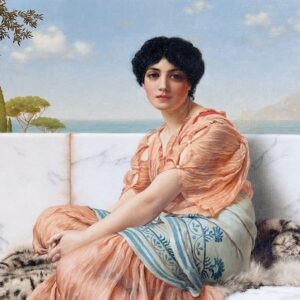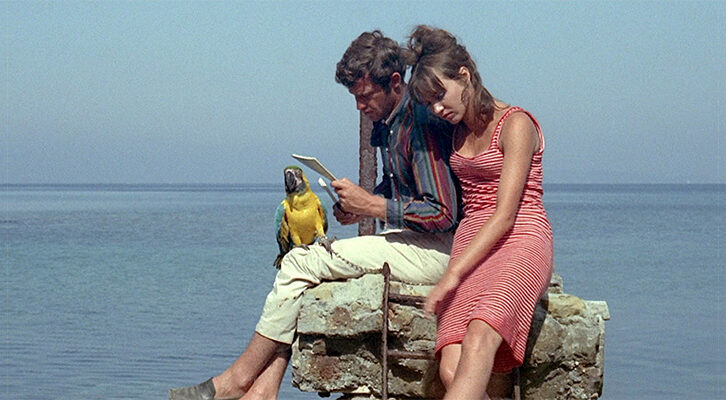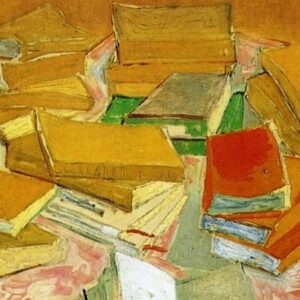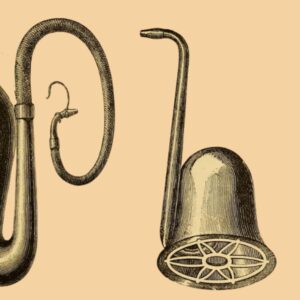
The Horrors and Pleasures of Translating Ulysses
Finding the Polylingual Pleasures of Joyce's Prose in French Translation
Bloomsday—June 16th, 1904—is the day on which James Joyce’s Ulysses is set. Among the usual annual commemorations of the date in Dublin, New York, Trieste, Sydney, and beyond, Bloomsday will also be celebrated in Paris, the city where the book first appeared. The American Library in Paris, an institution that was founded two years before Ulysses was published in 1922, will play host to the 2016 festivities.
French speakers have been able to read modernism’s magnum opus in their native tongue since its first translation in 1929. The French Ulysses, called Ulysse, was produced by a team that included August Morel (a young writer from the Celtic province of Brittany), Stuart Gilbert, Valery Larbaud, and bookseller and publisher Adrienne Monnier, with Joyce himself assisting from the wings.
Exploring their French translation of Ulysses is a fascinating exercise in comparative wordplay. It’s interesting to see how the translators tackled the challenge of migrating the book into French, and especially how they managed its most famous passages. Take, for instance, Buck Mulligan’s pronouncement on the genital effects of cold sea water. Mulligan describes the sea as “a great sweet mother? The snotgreen sea. The scrotumtightening sea.” Morel and his assistants outdo themselves with the following offering: “la grise et douce mere. La mer pituitaire. La mer contractilo-testiculaire.” Not only are the French equivalents as delightful and as witty as the English, but they also rhyme and introduce a meaningful homonym (the passage’s comparison of the sea with a mother is even more felicitous in French where mother is “mere” and sea is “mer”). Joyce’s Latinate phrases also slip by with great ease: “Ineluctable modality of the visible” hardly needs translation to become “Inéluctable modalité du visible.”
In other places, a gap yawns between English and French. The Oxen of the Sun section faces the greatest difficulties. There, Joyce provides a description of the labor and childbirth of Dubliner Mina Purefoy while taking readers on a tour of English literary style from Anglo-Saxon alliteration to his present. Morel tries to find an equivalent of the alliterative style of Joyce, but you can feel him stretching and having to change the feeling of the passage. “Before born babe bliss had. Within womb won he worship,” Joyce wrote. Here’s how it came out in translation: “Bébé non né eut félicité. Foetus il fut fété.” The fetus was feted! Not quite as tinged with wonder, and a fetus isn’t the same thing as a womb.
There are places where even more gets lost in translation. Take the folksy line from “Nausicaa:” “Think you’re escaping and run into yourself. Longest way round is the shortest way home.” Here, the translators come to rest on the following: “Vous croyez vous echapper et c’est sur vous que vous tombez. Tous les chemins ramènent à Rome.” All roads lead to Rome. This happens to rhyme with the English line, but, since Rome was the imperial hub of the ancient world, it compromises the book’s drive to locate the feeling of home in one’s colonized country. It matters that Leopold and Stephen find late-night friendship in Dublin, and that Leopold comes home to Molly there, not in Rome.
Certain moments in the translation seem designed to charm a French audience specifically. When Stephen remembers “Paris rawly waking, crude sunlight on her lemon streets,” he provides a rather queasy description of the yeasty morning smell of bread: “Moist pith of farls of bread, the froggreen wormwood.” In the hands of the translators, this becomes much more appetizing as “La pulpe moite des croissants fumants, l’absinthe couleur de rainette.”
* * * *
“Paris” is the last word of Ulysses, following the names of the other cities where Joyce wrote it (Trieste and Zurich). Leopold Bloom’s thoughts sometimes turn to France—mostly to “French letters” (condoms) and French shoes (women’s). Molly Bloom remembers being coached by the Land League to learn a song in French “to be more classy”—but she more fondly remembers the French dress sent to her by a family friend. In “Oxen of the Sun,” Paris is associated with pornography and “double envelopes [containing] an obscene photograph, such as are sold after dark on Paris boulevards, insulting to any lady.” The xenophobic citizen of the “Cyclops” episode writes off the whole nation as “a set of dancing-masters.” All of these mentions of France are naughty, frilly, or even insulting. It is Stephen Dedalus’s perspective that brings Ulysses its passion for Paris, and its sense of Paris as a sacred place. One of Stephen’s most endearing qualities is his Francophilia. As he wanders Dublin feeling lost, he frequently reverts to thoughts of Paris. Like Joyce, he had been a student before being summoned home to his mother’s deathbed. In the opening scenes, Stephen wants to take his coffee black, but Buck Mulligan reprimands him—“damn you and your Paris fads.” While teaching, Stephen’s memory is jogged by a phrase to remember some words of Aristotle that he studied in Paris, bringing back a fond memory of “the studious silence of the library of Saint Genevieve where he had read, sheltered from the sin of Paris, night by night.”
The library of Saint Genevieve where Stephen studies, and where Joyce had studied before him, is one of those beautiful buildings that projects a mystical awe at the workings of the imagination (it features in Scorsese’s Hugo). Completed in 1850, the library took on a more ancient cast when filled with its holdings, the collection of the Paris Abbey of Saint Genevieve (two million books from an Abbey that had been suppressed during the French revolution). Not only Joyce but Marcel Duchamp labored there.
By the time Joyce finished Ulysses, he had made it back to Paris, which was his own as well as Stephen’s mecca of art, spirit, and sin. The work of finishing Ulysses and of getting it into print, first in English and then in French, was based there, both in Joyce’s various apartments and in the bookstores of the American Sylvia Beach and the French Adrienne Monnier. Monnier did for Ulysses in French what Beach did for the book in English. Her bookstore La Maison des Amies des Livres was across the street from Sylvia Beach’s Shakespeare and Company in Paris. At first her friend Valery Larbaud was asked to take on the job, since he had delivered such a “jolly” interpretation of Ulysses in a lecture at her bookstore in 1921, but when he proved too busy, he agreed to oversee it instead. Morel took on the task, and when the English Stuart Gilbert noticed some slips, he too got involved making sure that Morel grasped the nuances of all of Joyce’s English words.
Presiding over the publication of the book nearly wore Monnier out. Even reading it tested her patience. She confessed:
We are somewhat like the traveler returning from a long and often hard journey; we have gone a great distance; have barely seen anything, are dead-tired, have suffered in turn from thirst, giddiness in high altitudes, the sting of insects. But we have had moments of pleasure. We have been shown scenes as unforgettable as the arrival at Lhassa, the forbidden city.
Drawn into a project she may not have taken on without the encouragement of Beach, Monnier was no pure booster: she raised her reservations about Joyce’s Dublin epic in the following terms: does “encyclopedic” equal artistically valuable? What do we gain from the use of the technique of “interior monologue” (her word for stream-of-consciousness)? Why bother with the parallel with the Odyssey? She compared the book unflatteringly with Tolstoy’s War and Peace.
Monnier called herself Ulysses’s first French reader, and because she spent her afternoons in the early 1920s on the rue de l’Odéon with Joyce and Beach, taking part on a day-by-day basis in the adventure of Ulysses’s first publication, she may well have been right. Monnier wrote two essays about her work with Joyce. One, Joyce’s Ulysses and the French Public, tries to recapture her first impressions of reading the book. She recalls being enchanted by the woman who brings milk to Stephen and his friends at the Martello Tower, as well as with Joyce’s descriptions of the sea. But beginning with the second episode, “it begins to go uphill.” By the third, “we are completely lost.” When Leopold Bloom comes on the scene in Episode 4, Monnier’s relief at getting a break from the “bookish, smug” Stephen Dedalus co-exists with her frustration that no parallels with Homer can readily be found. Still, as the book goes on, Monnier manages to divert herself with charming barmaids, surrealism, touches of burlesque, Joyce’s slang, his shifts in tone, the three girls of Nausicaa including Gerty McDowell who forms the object of Leopold’s jerking off (“the male public has much enjoyed this chapter,” Monnier notes) until she is won over again by the “terrifying virtuosity” of “Oxen of the Sun.” She makes vast claims for the question-and-answer format of “Ithaca,” the section that narrates Stephen and Leopold’s late-night camaraderie. Last, she turns to Molly’s monologue, which she considers with a slight sense of duty because it is the greatest hit, the one everyone has read: ever the rarified mind, she claims that its “peculiar style has no surprises for us.”
Translating the novel into any language is an epic task. Speaking of the “horrors and pleasures of that ordeal,” the book’s Danish translator Mogens Boisen remarked that after translating the book, “One is not the same. One has been Ulyssified.” His particular obsession was with Ulysses’s many “leitmotifs.” He created an elaborate filing system to make sure that he could keep track of a motif that appeared near the beginning 700 pages later. When he was done with his Danish version, he went on to correct the leitmotifs of the German translation and offered to do the same for the French and Swedish ones.
Twenty years later, Boisen was still haunted by the vision of the typeset of particular pages and fighting off an urge to start the whole project all over again. He tells the joke he inevitably got whenever he mentioned his translation—“I always thought it ought to have been translated into English first, ha, ha!” Mohammad Darweesh got the same retort from a British Customs agent when he revealed that he was translating the book into Arabic. Perhaps the joke got started with Flann O’Brien. He wrote in his 1951 essay “JJ and Us,” after coming up with the idea of translating the book into Irish, “If they won’t read it in English, I said to myself, bedamn but we’ll put them in the situation that they can boast they won’t read it in Irish aither” (after O’Brien gave up on the idea, the Irish translation had to wait a few decades: it was translated in a series of pamphlets that appeared between 1987 and 1992).
The joke that Ulysses needs translation even into English suggests that outside of Finnegans Wake (where it’s too dark to read), Ulysses is one of the toughest gigs there is for a translator. But the surprising sensation I had while reading Ulysse was that Morel and his team made it look easy. And for some reason, even I, with my English-Canadian’s French, found it easy to read, maybe even easier than I’d found Ulysses the first time I encountered it in English. Perhaps it’s because I know the novel well now, or perhaps it’s because the various sections of Ulysses are so immediately recognizable by their typography. Whatever the cause, I navigated through Ulysse with a greater ease than I was expecting. Perhaps it’s time to bring Morel’s first French translation back into print in an affordable facsimile edition, something like the welcome ten-dollar reprint of the original Shakespeare and Company Ulysses by Dover? Joyce was a writer who lived and wrote closely in touch with French, and who even took a hand in the translation of his masterpiece. Exploring the French Ulysses breeds a deeper appreciation for the polylingual pleasures of his prose.
Keri Walsh
Keri Walsh is the editor of James Joyce's Dubliners (Broadview Press, 2016) and The Letters of Sylvia Beach (Columbia University Press, 2010). She is Assistant Professor of English at Fordham University in New York.



















